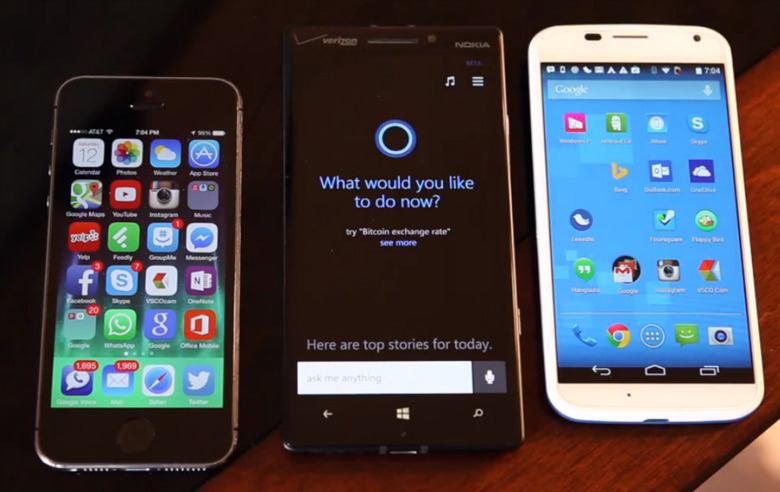This Incredible Heartwarming Story Shows Us How Amazing Siri Can Be
Siri, Google Now and Cortana are the three main voice-based virtual assistants available on competing mobile operating system from Apple, Google and Microsoft, respectively. While there's fierce competition between them as each company tries to improve its own assistant solution and beat the others, there's one way these advanced apps can help without necessarily having to be extremely accurate and fast.
For at least one autistic boy, Siri has become a best friend and a virtual companion that has all the time in the world to patiently answer all his queries, one way or another.
FROM EARLIER: The funniest thing you'll see today: Jimmy Kimmel and Siri the waitress
"Just how bad a mother am I? I wondered, as I watched my 13-year-old son deep in conversation with Siri. Gus has autism, and Siri, Apple's 'intelligent personal assistant' on the iPhone, is currently his B.F.F," Judith Newman began her article in the Times. "Obsessed with weather formations, Gus had spent the hour parsing the difference between isolated and scattered thunderstorms — an hour in which, thank God, I didn't have to discuss them."
Siri may not always be able to help you out of a jam, but for Gus that isn't a problem. What matters for the 13-year old boy is that Siri will always answer to anything he tells her, whether she's actually offering results for certain questions, or simply issuing polite and/or humorous responses to the kind of lines the assistant can't handle just yet.
His mom says that the always-present assistant has helped her son in many ways, whether it's having to clearly enunciate words when talking to Siri or improving his social skills.
"For most of us, Siri is merely a momentary diversion," Newman wrote. "But for some, it's more. My son's practice conversation with Siri is translating into more facility with actual humans. Yesterday I had the longest conversation with him that I've ever had. Admittedly, it was about different species of turtles and whether I preferred the red-eared slider to the diamond-backed terrapin. This might not have been my choice of topic, but it was back and forth, and it followed a logical trajectory. I can promise you that for most of my beautiful son's 13 years of existence, that has not been the case."
Siri — or Google Now, Cortana and any other similar virtual assistants — will not fix autism anytime soon, but such programs may further be enhanced to talk to and help patients that may otherwise find it difficult to communicate.
The Times' full article is available at the source link below.
